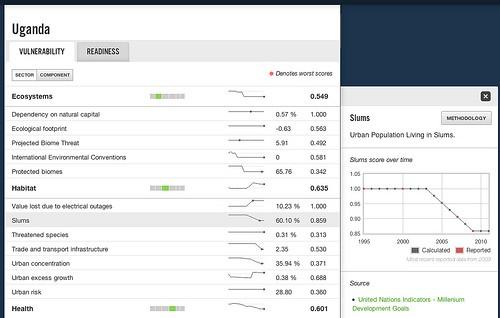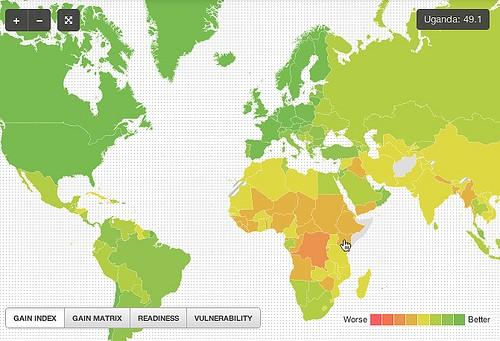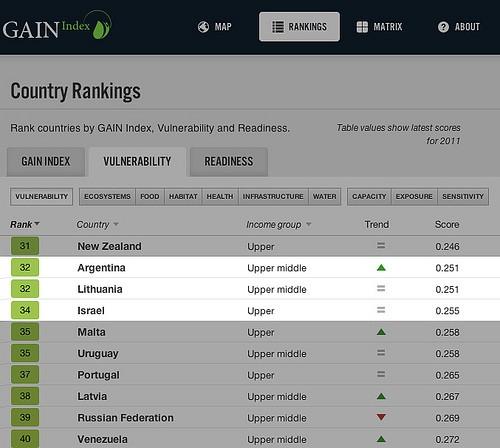On Monday leaders in the environmental community, government, and private sector came together at Princeton University to unveil of the second edition of the Global Adaptation Index (GAIN). GAIN, which we helped launch last September, is a powerful navigational tool designed to guide policy and private sector capital to the places where it will have the greatest impact on adaptation to climate change. You can explore the GAIN browser at index.gain.org.
More indicators
This year GAIN’s scientists strengthened vulnerability assessments by adding information about human habitats and risks to ecosystem services. Country pages now boast 12 new indicators in these sectors to assess vulnerability to climate change and ability to adapt to it.

New maps
We updated all maps with a more logical color scheme, such as this one showing Uganda’s GAIN score.

A new four color map features the key quadrants of the GAIN index. Countries in the red quadrant, such as Uganda, are highly vulnerable to climate change and not ready to take on investments to react to it. Likewise blue signifies that a country is vulnerable but ready for investment, yellow shows low vulnerability and low readiness for investment, and green — as the ideal quadrant — shows low vulnerability paired with solid receptiveness for resilience building investments.
Updated rankings
Country rankings have been updated to properly reflect equal scores. For instance, Argentina and Lithuania share the same vulnerability rank of 32, with Israel immediately following them with the rank of 34.

Header refresh
GAIN also wanted to do a quick design refresh on their header to reflect some organizational and branding changes.

Behind the scenes
The data portal has been upgraded from node.js 0.4.6 to 0.8.9, and all maps are now generated with Mapnik 2.0 — bringing it up to the latest versions and capabilities. Everything else remains as launched last year. The site is built with Backbone.js and Bones, the data is stored in CouchDB, and we’re serving from behind an Nginx proxy.
What we're doing.
Latest
